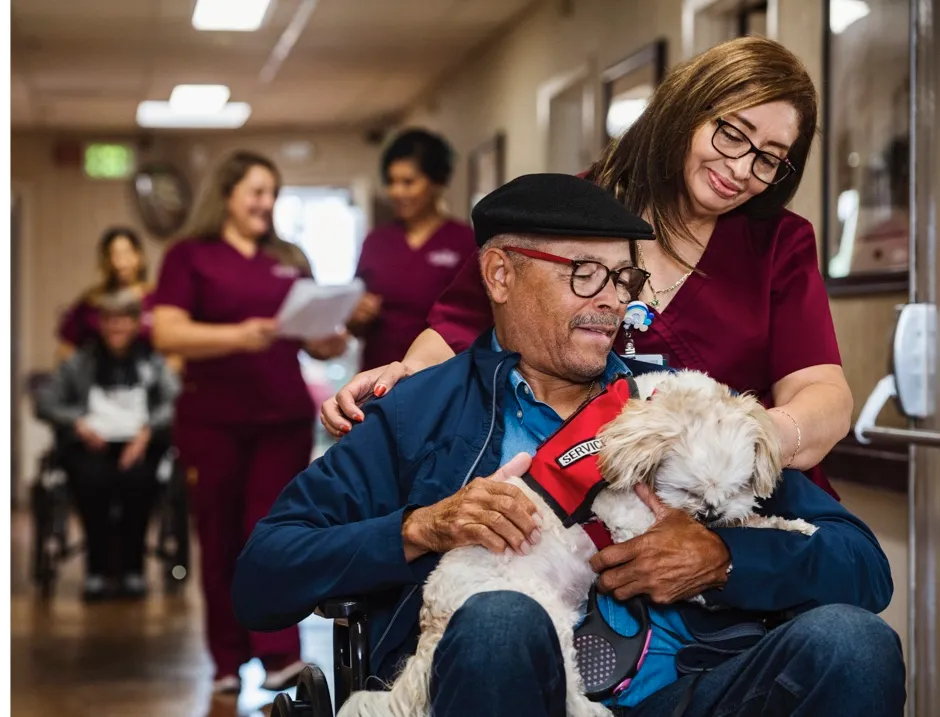More than 10,000 people in Europe use an assistance dog, whether that’s a guide dog, a hearing dog, a medical response dog or a psychiatric service dog.
While the law states that these dogs are allowed access to shops, hospitals, public transport, restaurants and other places, in reality many owners of assistance dogs report that they and their dogs are often refused entry. In the Netherlands, four out of five assistance dog users say they regularly experience problems, while according to Guide Dogs for the Blind in the UK, 75 per cent of assistance dog owners say they have been refused access.
Concerns about hygiene are often cited as the reason for barring entry, but a new pilot study by Utrecht University in the Netherlands has found that the paws of assistance dogs are cleaner than the soles of shoes.

For the study, the researchers recruited 25 assistance dogs and their users, and 25 pet dogs and their owners. The dogs included a wide variety of ages and breeds. The dogs and their owners all took a 15- to 30-minute walk, and then swabs were taken from the pads and toe webbing of the dogs’ front paws, and the soles of the humans’ shoes.
The samples were screened for Enterobacteriaceae, which is a common group of bacteria that can cause infections and is present in plants, soil, water and poo, as well Clostridium difficile, which causes diarrhoea.
“The dogs' paws turned out to be cleaner than the soles of the shoes,” said Jasmijn Vos, who took part in the research. “This makes the hygiene argument that is often used to ban assistance dogs from public locations invalid.”
Furthermore, C. difficile was not present on any of the dogs’ paws, and only showed up on one shoe sole.
Read more about dogs:
- This is your brain on puppies: the adorable neuroscience of cuteness
- What's the longest a dog can live for?
- Why do dogs eat grass (and poop)?
In the study, the researchers hypothesised that the dogs’ paws could be cleaner because they tend to frequently groom themselves, whereas humans will only generally clean their shoes if they look dirty. Also, a number of the dog owners surveyed in the study said they wash their dogs’ paws after they come home from a walk, which may keep the general hygiene levels higher.
The researchers say that larger studies could be carried out that further investigate possible factors linked to the presence or absence of bacteria in dogs' feet.
Reader Q&A: Do guide dogs know that their master is blind?
Asked by: Pad Scanlon, London
Although all dogs show signs of having ‘theory of mind’, which enables them to grasp the fact that we think differently from them, it’s unlikely that they are capable of extending this to knowing the reason why one person behaves differently to another.
The concept of vision, and therefore the loss of it, is a complex one, so we don’t think dogs have an understanding of what it means to be blind. But, of course, they can learn what things a blind person needs help with, and adjust their behaviour accordingly. Interestingly, studies show that guide dogs will still look to their master’s face for cues when begging for food, just as a sighted person’s dog would.
Read more:
